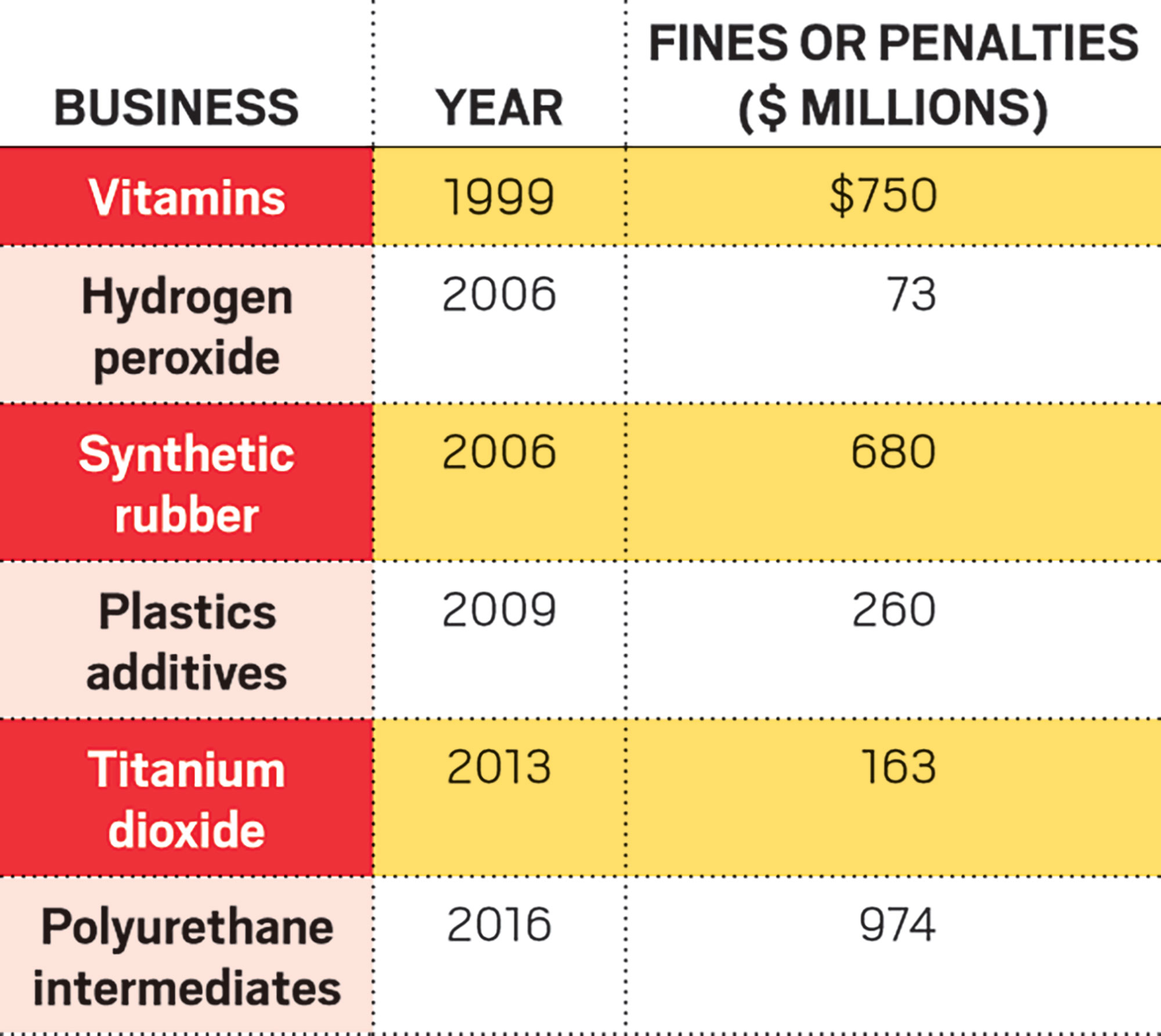Advertisement
Grab your lab coat. Let's get started
Welcome!
Welcome!
Create an account below to get 6 C&EN articles per month, receive newsletters and more - all free.
It seems this is your first time logging in online. Please enter the following information to continue.
As an ACS member you automatically get access to this site. All we need is few more details to create your reading experience.
Not you? Sign in with a different account.
Not you? Sign in with a different account.
ERROR 1
ERROR 1
ERROR 2
ERROR 2
ERROR 2
ERROR 2
ERROR 2
Password and Confirm password must match.
If you have an ACS member number, please enter it here so we can link this account to your membership. (optional)
ERROR 2
ACS values your privacy. By submitting your information, you are gaining access to C&EN and subscribing to our weekly newsletter. We use the information you provide to make your reading experience better, and we will never sell your data to third party members.
Finance
Caustic soda makers accused of fixing prices
Lawsuit alleges that top 5 US producers conspired to boost profits
by Michael McCoy
March 29, 2019
| A version of this story appeared in
Volume 97, Issue 13
Sodium hydroxide, also known as caustic soda, is one of the most ubiquitous chemicals in commerce, used as a base or neutralizing agent in everything from laboratory research to large-volume industrial processes.
Now, a small chemical distributor in New York State has filed a lawsuit claiming that the largest US producers of caustic soda have conspired since 2015 to fix the price of the chemical. Lawyers for the firm, Amrex Chemical, say they are bringing the action on behalf of caustic soda purchasers as a class and that they seek both damages and a break-up of the alleged cartel.
Bad behavior
Chemical makers have paid dearly for price-fixing schemes over the years.

Note: Figures were publicly reported but may not represent all awards collected.
The suit, filed by two law firms in US District Court for the Western District of New York, fingers Formosa Plastics, Occidental Chemical, Olin, Shintech, and Westlake Chemical as being in the cartel. It says they got together following a period of falling prices to restrict supplies, allocate customers, and raise prices in violation of antitrust laws. Defendants contacted by C&EN either didn’t respond or said they don’t comment on lawsuits.
Thanks to industry consolidation, including Westlake’s acquisition of Axiall and Olin’s purchase of Dow Chemical’s chlor-alkali business, the companies being sued produce at least 90% of US caustic soda supply, the lawsuit says. The firms began to work together in 2015 through secret agreements, exchange of nonpublic information, and manipulation of a price index, the suit alleges. Since then, it says, they have increased prices by more than 50%.
The chemical industry has proven ripe for both attorneys and regulators seeking big rewards in anti-trust cases. In 1999, the US Justice Department levied about $750 million in fines, the biggest antitrust award in history until that point, against Roche and BASF for fixing the prices of various vitamins. In 2016, Dow Chemical paid $835 million to settle a case alleging the fixing of prices for polyurethane raw materials; other firms had settled earlier.


Join the conversation
Contact the reporter
Submit a Letter to the Editor for publication
Engage with us on Twitter